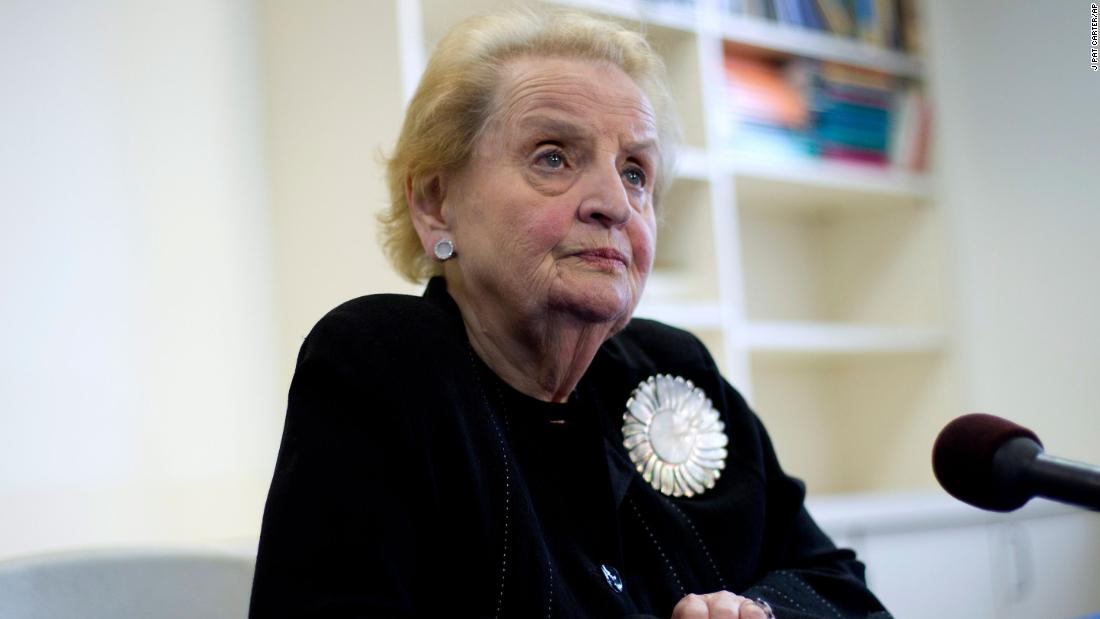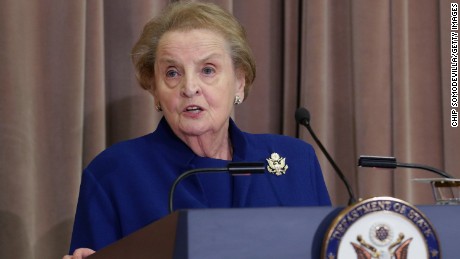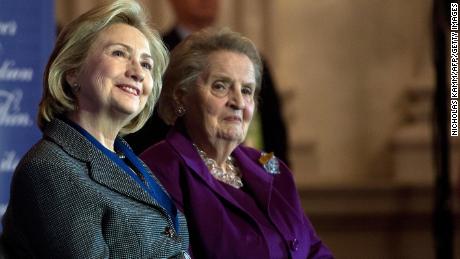Her commitment to democracy was deep and influenced all that she did in her lifetime. When she was a child, her family had to flee Czechoslovakia twice, first to escape the Nazis and then the Communists. Her experience as a refugee clearly shaped her worldview, which included an abiding love for her adopted country. As she once said, “Only in America can a refugee become the Secretary of State.”
Madeleine viewed democracy as something that had to be defended at the level of each citizen. In her interactions with young people, she conveyed that they had a responsibility — and the power — to fight for their own rights and freedoms.
It spoke volumes that her first official trip as Secretary of State was not to a foreign capital, but to Rice University in Texas, where she promised, “As Secretary, I will do my best to talk about foreign policy not in abstract terms, but in human terms — and in bipartisan terms. I consider this vital because in our democracy, we cannot pursue policies abroad that are not understood and supported here at home.”
She gave back, and when the Albright Institute pioneered a distinctive, interdisciplinary approach to educating women for leadership in global affairs at Wellesley, she was so generous in sharing her time and wisdom with the more than 500 young women who have been selected as fellows since the Institute was established. She returned to campus to offer each new class a wildly popular lecture that she called “Madeleine’s Diplomatic Toolbox.”
Within the toolbox, as you can imagine, there was a great deal of eternal wisdom. She helped our students to see that complex global problems can only be solved collaboratively and with an appreciation for differing perspectives. “You can lead,” she would say to them, “but you must listen.”
Madeleine listened, and she always made sure to share the credit. When people praised her for breaking the glass ceiling as Secretary of State, she often thanked another Wellesley alumna, Hillary Clinton, who would later go on to become Secretary of State herself, for advocating for her with President Bill Clinton.
Madeleine never forgot the importance of relationships, either. It was part of what made her so effective on the global stage, as she used her tremendous empathy, humor and charm to forge new connections in favor of a more democratic world.
She was also unfailing in her support for women. She mentored a generation of foreign ministers, and when they left office, continued to work with them to advance democracy and women’s rights, which are inextricably linked.
One of her lasting gifts will be the students from around the globe who will live by the wisdom they learned from Madeleine.









More News
The Bleak Life of a Deposed President and His Wife, Held Captive
Frank Stella, Towering Artist and Master of Reinvention, Dies at 87
Hats on and Off at the 150th Kentucky Derby